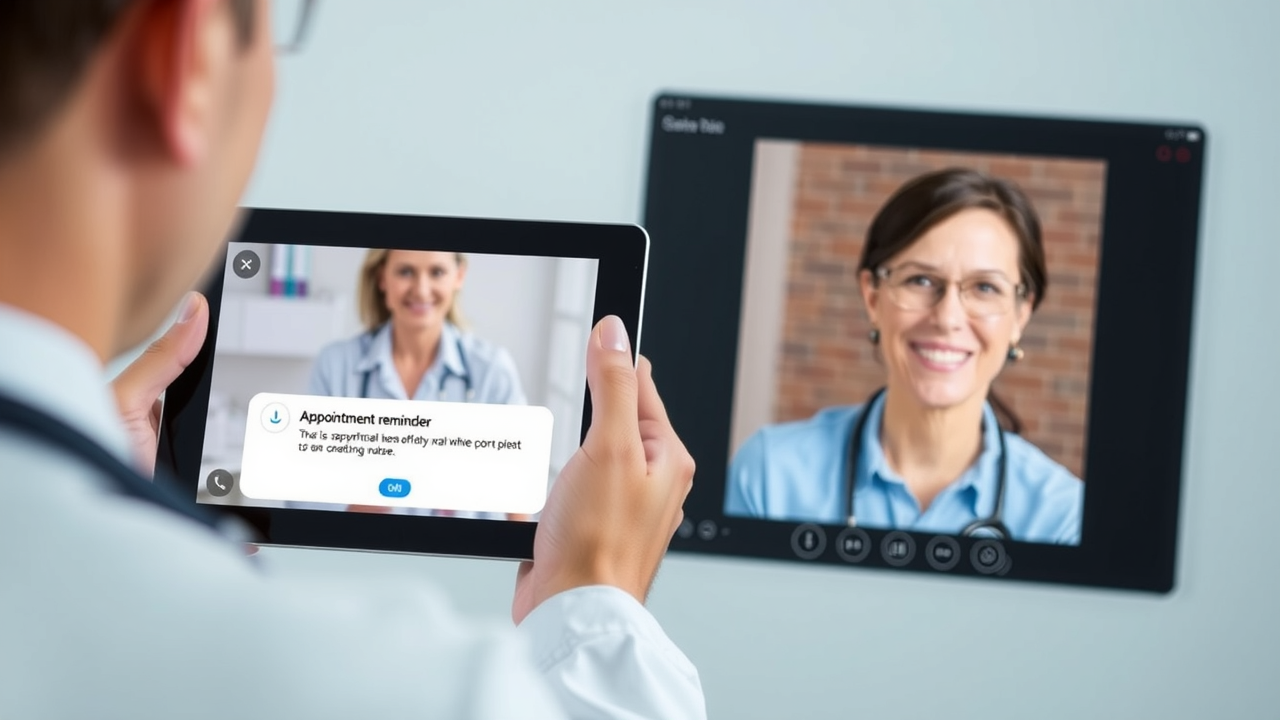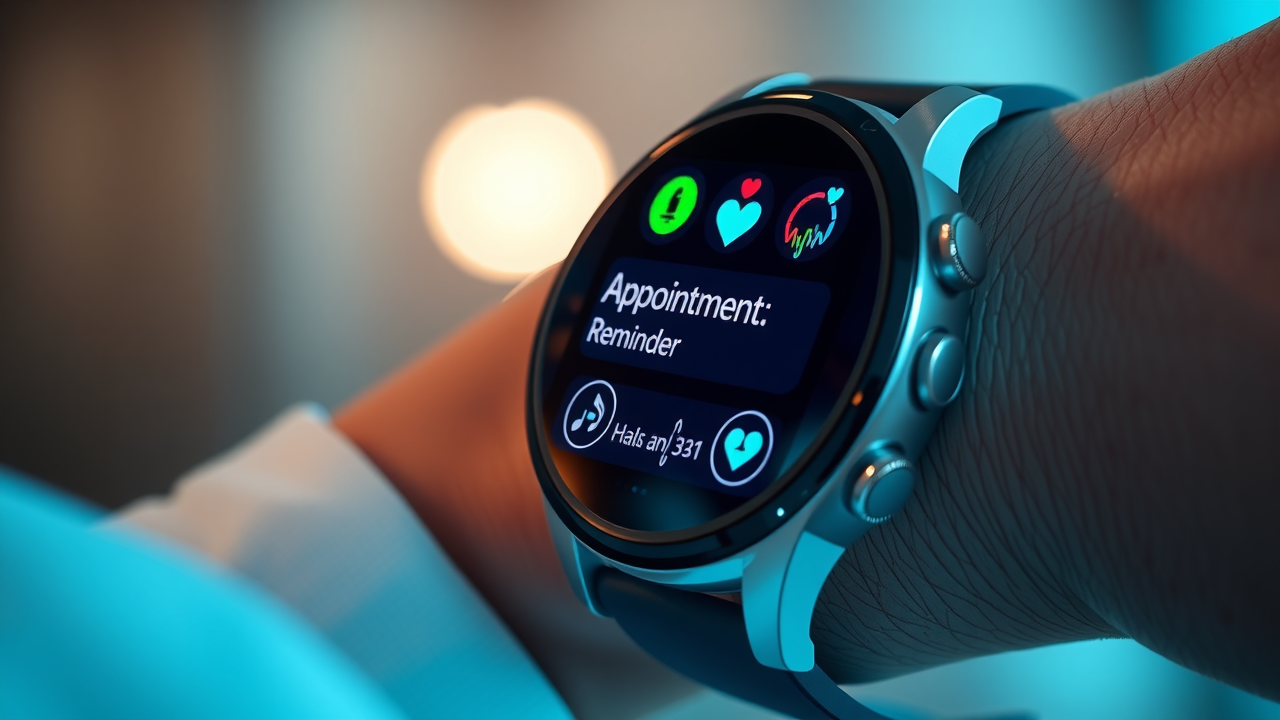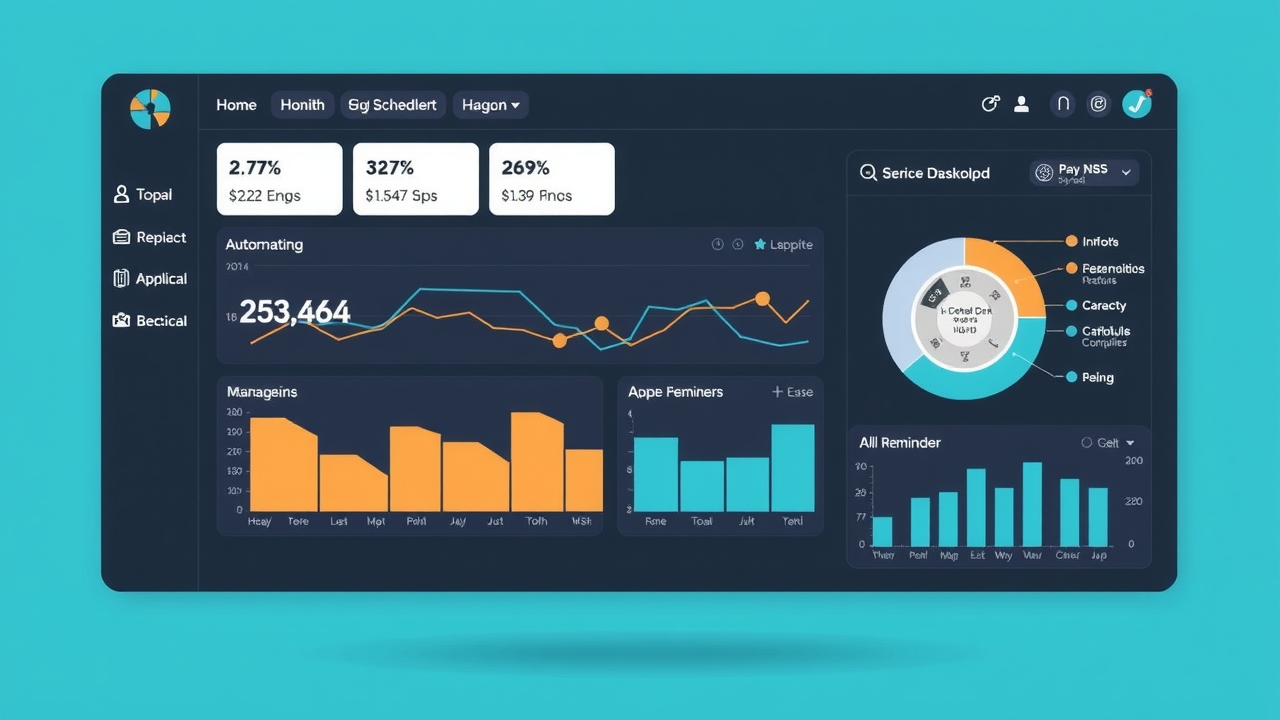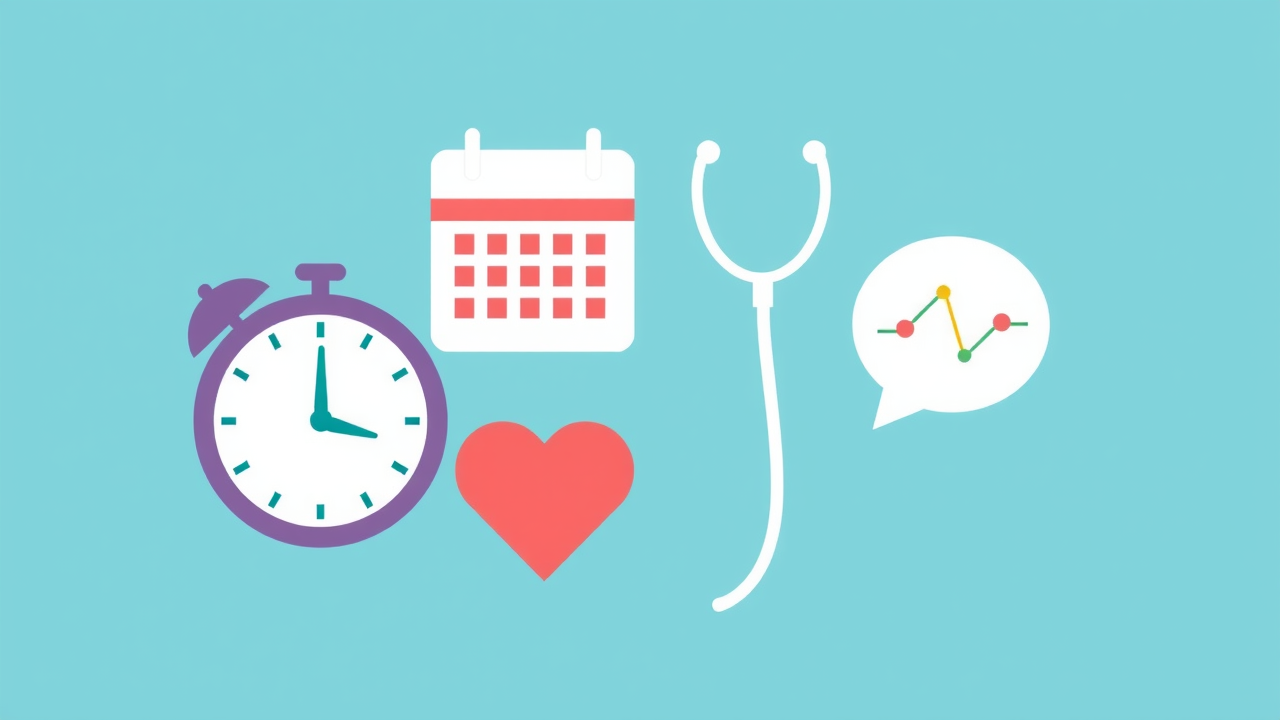
Did you know that no-shows cost the U.S. healthcare system an estimated $150 billion every year? Missed appointments create chaos for clinics, stress for staff, and can compromise patient health outcomes. If you’re seeking a proven way to slash those lost visits, medical appointment reminders are the modern solution your practice needs.
In this essential guide, you’ll discover how patient appointment reminder technology helps practices of every size eliminate no-shows, elevate the patient experience, and maximize revenue—all while meeting strict security and compliance requirements.
Reducing Missed Appointments with Medical Appointment Reminders
Missed appointments are a universal headache for both healthcare providers and patients. From understaffed clinics to large hospital systems, every missed visit results in wasted resources, disrupted schedules, and lost revenue. The financial impact quickly adds up: just a handful of no-shows per day can lead to tens of thousands of dollars in annual losses for a single practice. Medical appointment reminders are designed to directly tackle this problem. By automating timely notifications—via text messages, phone calls, or email —an effective reminder system ensures patients receive all the information they need to attend or reschedule their appointment. This not only helps keep appointment books full but also enables patients to take control of their own care, ultimately leading to fewer missed appointments and improved health outcomes.
The right appointment reminder service isn’t just about sending messages; it’s about optimizing patient attendance rates. Studies show that practices using patient appointment reminders can reduce no-shows by up to 40%. Whether patients receive a friendly reminder via an automated phone call or a quick SMS reminder, these tools keep upcoming appointments top-of-mind, lower the barrier to rescheduling, and enhance the patient journey from start to finish.
The Surprising Cost of No-Shows: Why Effective Reminder Systems Matter
No-shows are far more than an inconvenience—they’re a significant drain on healthcare resources and can directly impact a practice’s bottom line. Each missed appointment means lost revenue for the provider, wasted staff time, and decreased access for other patients needing care. For example, in larger hospital systems, average no-show rates can reach 20% or higher, representing millions in annual revenue loss. This makes effective appointment reminders not just a convenience, but a business necessity.
The ripple effect goes beyond finances. Every missed visit may delay critical care for patients, complicating both diagnosis and follow-up. The challenge for providers is ensuring that patients remember, confirm, and keep their scheduled visits. Enter the appointment reminder system: by delivering consistent, easily actionable reminders and patient appointment confirmations, providers can drastically reduce missed appointments and streamline daily operations. Ultimately, these systems are proven tools for boosting both operating efficiency and patient satisfaction.

Understanding Medical Appointment Reminders and Reminder Systems
Medical appointment reminders are automated tools or platforms that notify patients of upcoming appointments, reducing the chances of forgetfulness and miscommunication. Today’s systems encompass everything from simple phone calls to sophisticated multi-channel platforms that use text messages, email, and push notifications. These solutions are typically integrated into clinical workflows, making it easier for staff to focus on patient care while improving overall attendance rates. For healthcare providers, investing in a patient appointment reminder solution is quickly becoming standard practice—not just to reduce missed appointments, but to optimize efficiency, boost patient engagement, and improve health outcomes across the entire patient journey.
A modern reminder system can automatically deliver reminders at optimal times, customize messages for different patient types, and track responses in real time. This evolution from manual reminder calls to advanced, integrated systems reflects a growing recognition that seamless communication plays a critical role in providing patient-centric care while reducing administrative burdens on staff.
Defining Appointment Reminder and Patient Reminder Technology
An appointment reminder is any message or alert sent to patients to notify them about an upcoming appointment. Today, patient appointment reminders are mainly driven by cloud-based platforms that automate and personalize the process—no more staff spending hours cold-dialing patients. These systems allow for voice calls, text messages, and even customizable email notifications, delivered exactly when and how patients prefer. With patient reminder technology, practices can set up high-touch reminders, rescheduling options, and confirmations—all securely logged and managed from a centralized dashboard.
For patients, these reminders are straightforward: a friendly SMS reminder or automated phone call containing their appointment details, the option to confirm or reschedule their appointment, and sometimes links to important pre-visit instructions. For providers, these technologies mean more than streamlined communication—they provide insight into reminder effectiveness, track missed appointments, and allow for immediate action on cancellations, ensuring schedules stay maximally efficient.
How a Reminder System Works Across Patient Journeys
A modern reminder system supports patients through every stage of their healthcare journey, beginning with their first scheduled appointment and following up through every subsequent visit. When a patient books an appointment (either online, by phone, or in person), their details are automatically added to the reminder system. The system is programmed with preferred notification times, channels, and message content—tailored to each patient’s communication preferences and medical needs.
Once set, the appointment reminder system takes over: sending timely text message reminders, placing automated phone calls, or dispatching emails at set intervals before the scheduled visit. If patients need to change plans, most systems offer easy rescheduling links or callback options. These features minimize confusion, offer flexibility, and keep patients engaged throughout the entire process, yielding a smoother patient experience and reducing both no-shows and last-minute cancellations.
Comparison: Manual Reminder Calls vs. Automated Medical Appointment Reminders | ||||
Method |
Cost |
Patient Experience |
Success Rate |
Scalability |
|---|---|---|---|---|
Manual Phone Calls |
High (staff hours required) |
Personal, but time-consuming; subject to human error |
Medium |
Limited (labor-intensive) |
Text Messages (Manual) |
Medium (time spent typing/sys admin) |
Convenient, but not automated; potential for missed entries |
Medium-High |
Moderate |
Automated Patient Reminders |
Low (subscription-based) |
Highly convenient, customizable, accessible anytime |
High |
Excellent (scales with volume) |

Types of Medical Appointment Reminders: From Phone Calls to Text Messages
Appointment reminders can be delivered in several formats, each offering unique benefits for improving patient attendance rates and enhancing provider workflows. Understanding the primary types of appointment reminders—phone calls, text messages, emails, and software notifications—allows you to select the best fit for your patients and practice.
Some patients may still prefer a personal voice call, while others appreciate the convenience of a quick SMS reminder. With the growth of digital health platforms, integrating multi-channel reminders ensures all demographics are covered and patient engagement remains high. Practices that utilize a blend of reminders—tailored to patient preferences—find the greatest success in reducing missed appointments and improving the overall patient journey.
Text Message Appointment Reminders and Patient Experience
Text message appointment reminders have skyrocketed in popularity due to their simplicity, immediacy, and accessibility. With most adults checking their phones dozens of times a day, text messages cut through the noise and keep important dates top of mind. SMS reminder services are quick to set up, provide instant delivery, and give patients the freedom to respond or reschedule with a single tap. This seamless process makes text messages the preferred method of reminder for tech-savvy, busy, or younger patients, enhancing the overall patient experience and reducing the likelihood of missed appointments.
Studies show that text message appointment reminders can significantly improve patient attendance rates. Patients often appreciate the low-pressure format, the automatic inclusion of appointment details, and the option to add reminders directly to their phone calendars. For providers, SMS reminders are cost-effective, easy to automate, and simple to track—enabling data-driven improvements in patient engagement and appointment management.
Phone Call and Automated Reminder Service Benefits
Automated phone calls remain an essential tool for reaching patients who may not use or prefer text messaging. Many older adults and patients who value personal connection find voice call reminders familiar and reassuring. Automated voice calls can be used to confirm upcoming appointments, provide key instructions, and even allow patients to reschedule their appointment with simple voice responses. The automated reminder service dramatically increases efficiency by reducing the time clinic staff need to spend making manual phone calls, yet still delivers a touch of personal service.
For practices seeking to boost efficiency with minimal staff effort, automated reminder services combine the human touch with the advantages of technology. Systems can generate hundreds of personalized, branded voice calls an hour, all logged for reporting and compliance. This flexibility means clinics can always match communication modes to patient preferences and needs—ensuring no one slips through the cracks due to missed reminders.
Integrating Email and Multi-Channel Patient Reminders
Email reminders work well for patients who prefer digital correspondence or who want more detailed pre-visit information. Advanced appointment reminder software solutions enable practices to send personalized emails with embedded calendar links, directions, intake forms, or even telemedicine access details. Integrating email as part of a multi-channel reminder strategy ensures you extend your reach, engage patients more comprehensively, and meet evolving patient expectations in a digital world.
The most effective medical appointment reminder systems now feature a unified dashboard, enabling seamless integration of text, email, and voice notifications. Patients can opt-in to their preferred method, while practice staff benefit from centralized tracking, reporting, and management. This approach guarantees that every appointment reminder accommodates the diverse needs and habits of your patient base—reducing missed appointments while providing a modern, patient-focused experience.

Core Features of an Effective Appointment Reminder System
When choosing an appointment reminder system, it’s important to look for core features that collectively drive results: automation, customization, message scheduling, and robust security controls. The most advanced solutions allow practices to automatically segment patient lists, personalize reminder content and frequency, and optimize timing based on each patient’s communication preferences and medical needs. Features such as HIPAA compliance, seamless integration with practice management tools, and centralized reporting elevate both operational efficiency and patient experience.
Effective appointment reminder systems do more than just reduce missed appointments—they also help maximize patient engagement throughout the appointment lifecycle. Automated follow-ups and satisfaction surveys can be included as part of a broader patient communication strategy, ensuring consistent, relevant contact at every step of the patient journey. Ultimately, the right system not only minimizes no-shows, but also drives patient loyalty and streamlined daily operations.
Automated Patient Reminders and Customization Options
Automation is the heart of any modern patient reminder system. Automated patient appointment reminders allow clinics to set up recurring reminders at set intervals—24 hours before, a week prior, and even on the day of the appointment. These systems can be easily tailored to deliver reminder messages via patients’ preferred method, from a simple text message to a more detailed email. Customization doesn’t stop at delivery channel: practices can personalize content, language, branding, and even attach pre-visit instructions, driving deeper patient engagement and satisfaction.
Advanced appointment reminder software offers segmentation tools, enabling detailed targeting—such as age groups, appointment types, or language preferences. With real-time tracking and analytics, practices can see which reminder formats bring the highest attendance rates and adjust strategies on the fly. This level of automation and personalization means every patient receives the right communication at the right time, minimizing confusion and ensuring their upcoming appointment is both remembered and anticipated.
Patient Appointment Reminders: Timing, Frequency, and Personalization
Timing is everything in effective patient appointment reminders. Reminders sent too early may be forgotten, while late reminders can leave no time for rescheduling. Leading reminder systems enable dynamic scheduling, allowing clinics to define when, how often, and through which channel patients receive reminders. This ensures that text messages or phone calls arrive when patients are most likely to see and act on them—typically 24-48 hours before the visit.
Personalization is also key. By including the patient’s name, appointment details, and tailored health instructions (such as fasting requirements), practices foster a sense of individualized care. Frequent reminders can be automatically adjusted based on patient responsiveness—so those who often miss appointments might receive more frequent pings, while others receive just one or two reminders per visit. Ultimately, personalized, well-timed reminders support both improved attendance and a smoother, less stressful patient journey for all.
HIPAA Compliance and Data Security in Reminder Software
Any tool handling patient reminders must meet the strict security standards mandated by HIPAA and healthcare best practices. Appointment reminder software should encrypt all patient data and communications, restrict access to authorized personnel, log all reminder activity, and offer comprehensive audit trails. Secure communication protocols—such as encrypted SMS or secure email channels—safeguard patient information, ensuring that reminders are both effective and privacy-compliant.
By working with HIPAA-compliant appointment reminder providers, healthcare organizations can rest assured they’re delivering timely, actionable notifications without risking patient confidentiality. Practices should always verify vendor certifications, data handling policies, and the ability to securely integrate with existing medical record or practice management systems before implementing any reminder service.

Benefits of Medical Appointment Reminders for Practices and Patients
The impact of medical appointment reminders goes well beyond managing a busy clinic schedule. Robust reminder systems contribute to higher patient satisfaction, streamlined practice operations, fewer missed appointments, and ultimately, a healthier bottom line. Practices leveraging these systems enjoy an immediate reduction in costly no-shows, improved patient communication, and a more consistent, predictable patient journey for everyone involved.
For patients, automated reminders ensure better adherence to care plans, improved follow-up rates, and a sense of being valued by their healthcare provider. The result is a win-win: patients get the care they need, physicians maximize appointment efficiency, and clinics realize better resource utilization and increased revenue.
Reducing No-Shows and Missed Appointments with Automated Reminders
The number one benefit of automated patient appointment reminders is their proven effect on reducing missed appointments. By reaching patients early and often—with easy options to confirm, cancel, or reschedule—practices keep their schedules optimized and minimize costly downtime. Automated reminders also provide real-time appointment status updates, allowing staff to fill canceled slots promptly. This proactive approach leads to fuller schedules, reduced patient wait times, and maximized clinician productivity.
Research consistently shows that practices using automated patient reminders see missed appointment rates drop by 30-50%. Each reduction in no-shows not only prevents lost income but fosters better patient care, as more patients receive treatment without delay. For multi-provider clinics, automated reminders have a compounding effect: greater efficiency across the board, improved throughput, and higher patient satisfaction scores over time.
Improving Patient Experience and Patient Journey
Automated appointment reminders provide tangible improvements for the entire patient journey. Timely reminders lower the risk of missed or forgotten appointments, decrease last-minute cancellations, and offer helpful instructions ahead of visits. For patients, the convenience of choosing how—and when—they receive reminders leads to greater satisfaction and a sense of partnership with their healthcare provider.
Patient reminders can also be configured to include links to forms, driving instructions, or billing reminders, minimizing pre-visit confusion. Practices leveraging appointment reminder technology are often praised in reviews for their “organized, courteous communication” and “patient-first approach” to scheduling and coordination. Reducing appointment-related stress creates a more positive overall healthcare experience for everyone involved.
Boosting Practice Revenue and Operational Efficiency
Fewer no-shows mean more billable visits, higher staff productivity, and more efficient use of resources. Automated patient appointment reminders enable practices to optimize schedules, redistribute staff time (from making phone calls to direct patient care), and consistently fill appointment books—all of which directly increase annual revenue. Many providers report recovering tens of thousands in lost income within the first year of implementing automated reminders.
Reminder software also automates tedious tasks, reduces staff burnout, and streamlines workflow across front office, scheduling, and billing teams. By digitizing appointment communications, clinics enjoy a measurable return on investment, more predictable cash flow, and a strong foundation for scalable growth amid rising patient expectations and competition.

Choosing the Right Appointment Reminder Software and Services
Selecting the ideal appointment reminder software for your practice involves evaluating features, integrations, ease of use, support quality, and cost. Look for reliable vendors with proven healthcare expertise, customizable workflows, and a reputation for robust uptime and customer support. The best solutions adapt easily to your clinic’s size, specialty, and patient demographics—integrating seamlessly into daily operations and growing with your practice over time.
Beyond technical checklists, the most valuable reminder solutions offer flexible message templates, analytics dashboards, and automated rescheduling to handle real-life complexities. Sound appointment reminder programs will also demonstrate strong security protocols, HIPAA compliance, and fast onboarding, ensuring you can deliver patient reminders confidently and securely from day one.
Top Qualities of Reliable Appointment Reminder Software
When vetting providers, prioritize the following critical qualities:
Automation & Customization : Set-and-forget reminders and easily tailored messages for appointment type, provider, and patient preference.
Multi-Channel Delivery : Support for SMS, email, and automated phone call reminders in a single platform.
EHR/EMR Integrations : Seamless sync with your practice management or medical record system to automate workflows.
HIPAA Compliance : End-to-end encryption, secure authentication, and robust audit trails.
Analytics : Reporting tools to monitor reminder delivery, response, and missed appointments for actionable insights.
Scalable Pricing : Transparent subscription models suitable for solo providers, multi-location clinics, and enterprise networks.
How to Integrate a Reminder System with Your Existing Practice Management Tools
Integration is key to maximizing the value of medical appointment reminders. Modern reminder systems are designed to plug directly into leading practice management and EHR/EMR platforms via secure APIs or built-in connectors. This ensures patient data flows smoothly between platforms, eliminating manual entry and duplicate scheduling. When reminders update in real time, staff can always see appointment status, confirmations, or cancellations instantly, streamlining front-desk and back-office tasks.
For new implementations, most vendors offer dedicated onboarding, setup guides, and live training. In many cases, integration can be completed in a matter of days, not weeks, with minimal downtime. Look for systems that provide ongoing technical support, self-service customization, and compatibility with the tools your practice already uses to deliver scalable, patient-centric reminder communication.
Pricing Models and Return on Investment for Reminder Services
Appointment reminder services are typically offered as monthly subscriptions, with pricing based on patient volume, feature set, and level of support. Many solutions allow practices to scale usage up or down as needed, making ROI easy to track. The upfront investment is quickly offset by reducing lost income from missed appointments—often covering the cost of the reminder system multiple times over within the first year. Some vendors offer usage-based pricing, allowing pay-as-you-go access with no long-term contracts, while premier platforms may bundle reminder services with broader patient engagement tools for a comprehensive solution.
When comparing vendors, consider not just sticker price, but also ease of use, implementation timeframe, and bundled features. Practices should evaluate cost alongside strategic benefits—such as increased provider utilization, better patient retention, and sustainable growth.

Reviews of Leading Medical Appointment Reminder Solutions
Savvy practices often compare popular automated reminder programs before making their final selection. The best solutions are those that are easy to use, offer multi-channel messaging, integrate seamlessly, and provide excellent customer service. Below, we compare a few leading providers and examine a real-world case study to highlight patient satisfaction and practice impact.
Comparing Popular Automated Reminder Programs
Market leaders include programs like Solutionreach, Luma Health, and Weave. These platforms generally offer comprehensive feature sets—text, phone, and email reminders; intuitive dashboards for scheduling and review; and patient engagement options such as feedback surveys and recall campaigns. Each is HIPAA-compliant by design, easy to set up, and offers reliable integration with most practice management tools.
Clinics using these platforms report consistent reductions in missed appointments, streamlined front-desk workflow, and increased patient satisfaction scores—validated by glowing reviews across healthcare forums. Key differences can include template libraries, depth of integration, and customer support responsiveness, so practices are wise to request demos and compare real user feedback before deciding.

How to Get Started with Medical Appointment Reminders
Implementing a medical appointment reminder system is easier than ever, whether you run a solo practice or manage multiple healthcare sites. Begin with an audit of your current scheduling and reminder process, identifying the pain points that lead to missed appointments. Then, define your practice’s goals: reduced no-shows, improved patient communication, or a smoother patient journey. This clarity will help you select the right appointment reminder service.
Next steps include evaluating vendors for ease of use, integration with existing IT systems, compliance assurances, and support. Most providers offer quick setup, training, and onboarding to get teams up to speed fast. Once launched, monitor reminder effectiveness using built-in analytics tools, and tweak message timing, frequency, and content based on patient feedback and appointment outcomes. With ongoing optimization, reminders quickly become an indispensable part of modern healthcare delivery.
Implementation Tips for a Patient-Centric Appointment Reminder Service
Focus on crafting reminders that are clear, friendly, and actionable. Include appointment details, confirmation options, and an easy way to reschedule. Tailor communication methods to meet patient preferences, and schedule reminders at optimal times—typically in the evening or early morning when patients are most likely to check messages. Solicit patient feedback to ensure reminder systems are perceived as helpful rather than intrusive.
Collaborate with IT and practice management teams to monitor delivery metrics and missed appointment trends, using these insights to refine your process. The best appointment reminder services make scheduling effortless for both staff and patients—so continual improvement based on real-world feedback is key for lasting success.
Training Staff and Setting Up Automated Patient Reminders
Thorough training is critical to maximizing the benefits of your new appointment reminder system. Involve front-desk staff, schedulers, and providers early in the process, ensuring everyone is comfortable with the interface, workflows, and escalation procedures for confirmed or canceled appointments. Most vendors supply online training modules, live onboarding, and ongoing tech support to help resolve issues quickly.
Once staff are trained, set up pilot campaigns for a subset of patients, review initial performance data, and iterate before rolling out practice-wide. Encourage staff to remind patients of the new system during visits, to build trust and boost engagement. Well-trained teams and thoughtful implementation mean reminders become a seamless, value-adding part of your patient communication strategy.

Addressing Regulatory and Compliance Questions in Medical Appointment Reminders
Strict regulatory requirements govern how patient appointment reminders must be implemented in healthcare settings. The Health Insurance Portability and Accountability Act (HIPAA) requires all patient communications—including appointment reminders, rescheduling messages, and confirmations—to be secure, confidential, and accessible only by authorized users. Understanding these requirements is important to selecting the right technology partner and implementing compliant reminder workflows.
Practices must ensure that vendors offer strong data encryption, audit logging, and access controls. All communications should disclose only the minimum necessary patient information, and systems should be capable of promptly logging and reporting on all reminder activity for audit purposes. With these safeguards in place, providers can confidently use reminders without putting patient privacy at risk.
Ensuring Secure and Compliant Patient Reminder Communication
Implementing secure patient reminder communication begins with selecting HIPAA-compliant software vendors and establishing rigorous data handling protocols. All reminder messages—whether phone calls, text messages, or emails—should be delivered via encrypted, authenticated systems so patient details remain protected. Staff access to reminder systems should be restricted to trained, authorized users, and all activity should be logged for audit and compliance reviews.
Patient privacy documentation (such as Notice of Privacy Practices) should include clear policies on appointment reminders, informing patients what types of reminders they’ll receive and how to update their preferences. By maintaining high standards of data security, practices protect trust while increasing engagement and reducing missed appointments.

Final Thoughts: Why Medical Appointment Reminders Are Essential for Modern Healthcare
Medical appointment reminders are no longer just a convenience—they are a critical part of delivering efficient, patient-centered care. By reducing no-shows, improving scheduling efficiency, and keeping patients on track with their treatment plans, reminders directly contribute to better health outcomes. They also demonstrate that providers value patients’ time and well-being, which strengthens trust and long-term loyalty.
Reminder systems are a simple yet powerful way to bridge the communication gap between providers and patients. Whether delivered through text, email, or phone, they streamline workflows while enhancing the overall patient experience. Healthcare organizations that consistently use appointment reminders not only improve operational efficiency but also foster stronger patient relationships—an essential foundation for sustainable success in modern healthcare.

Frequently Asked Questions on Medical Appointment Reminders
How to remind a patient of appointments?
Several effective methods include using automated text messages, phone calls, and email reminders tailored to the patient’s preferences, leveraging patient appointment reminder technology for best results.
What is the best time to send patient reminders?
Most practices find reminders are most effective when sent 24-48 hours before the appointment, early morning or evening when patients are likely to check their devices.
How do I write a reminder for an appointment?
Compose clear, concise messages including the patient’s name, appointment date and time, location, and options for rescheduling or canceling. Appointment reminder software often provides customizable templates.
How do you measure the effectiveness of an appointment reminder service?
Track metrics like no-show rates, patient attendance, confirmation rates, and patient satisfaction survey results to evaluate and optimize your reminder strategy.
Are Appointment Reminders Allowed Under HIPAA?
Yes, appointment reminders are explicitly allowed under HIPAA as part of routine patient care. Providers may send reminders via phone, text, or email, so long as all communications are secure and contain only the information necessary to identify the appointment. Practices must still follow privacy best practices: never disclose sensitive health details in reminders, and always use encrypted channels when sending protected health information.

Boost Efficiency and Strengthen Patient Relationships with Appointment Reminders
Implementing a reliable medical appointment reminder system is one of the most effective ways to reduce costly no-shows, enhance patient satisfaction, and streamline daily operations. By keeping patients on track with their care plans and reinforcing communication, reminders not only improve health outcomes but also build trust and loyalty toward your practice. Don’t let missed appointments hold back your growth—start integrating smart reminder solutions today to boost efficiency, strengthen patient relationships, and secure long-term success for your healthcare organization.
 Add Row
Add Row  Add
Add 




Write A Comment